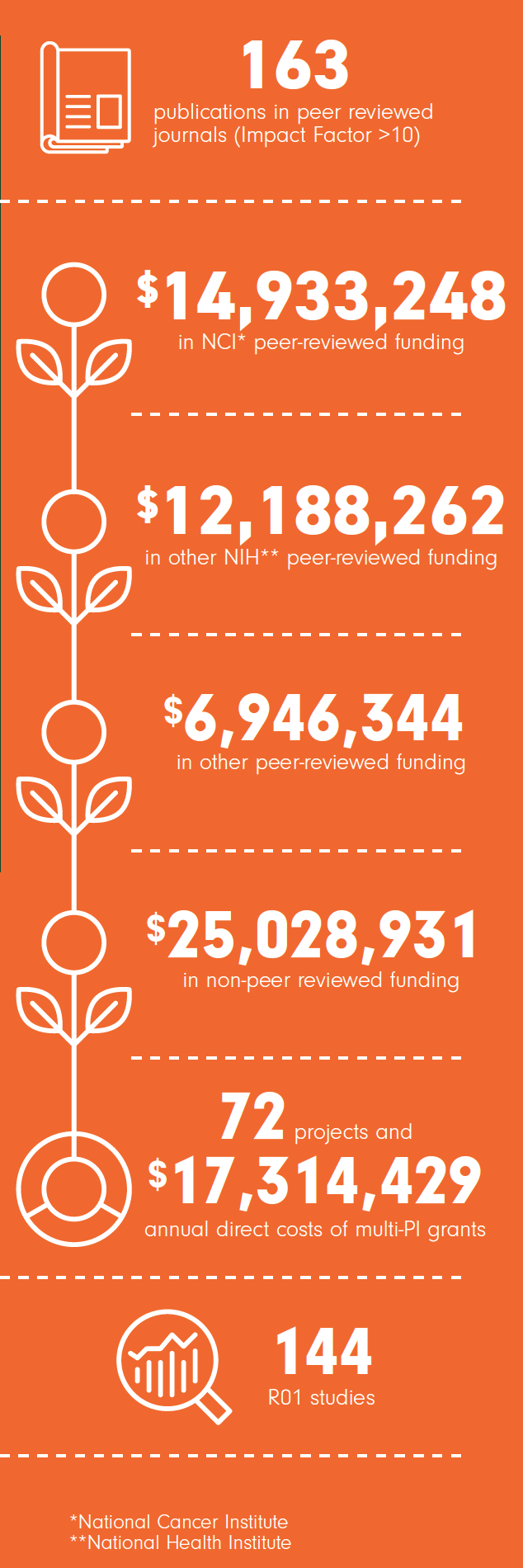Our unique location in Miami, at the crossroads of the Americas and the Caribbean, provides a distinct advantage for our researchers. Our proximity to diverse communities and populations enables scientists to study a wide range of cancer types and responses to treatment. It also allows them to share their knowledge to help collaboratively discover cancer cures.

With a spirit of team science, our scientists tackled complex challenges to drive innovation forward in 2023 and emphasize clinical approaches. For example, researchers shared decades of data from NCI-funded studies showing how stress reduction therapies, such as cognitive behavioral therapy (CBT) and relaxation training, can improve outcomes for cancer patients. Similarly, an extensive analysis underscored the correlation between unmet needs and poorer clinical outcomes.
At this year’s American Society of Hematology (ASH) conference, we presented a myriad of studies with promising results, such as a study on novel combinations of antibody therapies for high-risk follicular lymphoma patients and another on myelofibrosis, a rare form of blood cancer characterized by scar tissue formation in the bone marrow. There was also a review of quizartinib for acute myeloid leukemia, which was found to prolong survival and enhance patients’ quality of life. In lymphoma treatment, observations of patients entering remission before receiving cell therapy sparked intrigue and potential new avenues for study, as did a presentation on cellular therapy in real-world conditions.
We are moving the needle on cancer discoveries. One area of focus is in clinical trials on combination immunotherapeutic drug therapies. To support this area, we have created a specialized triaging unit to help handle challenging cases. The Immune-Related Adverse Events (irAE) program improves patient safety and exemplifies our dedication from bench to bedside. Along those lines, a phase 3 clinical trial on imetelstat showed clear advantages for those without other viable options, offering hope for patients with deadly cancers of the blood- producing marrow cells. Each clinical trial moves treatments closer to a future where cancer is more manageable and prevented. Through multifaceted tactics for cancer research and patient care, we continue to yield encouraging results and shape the oncology landscape.